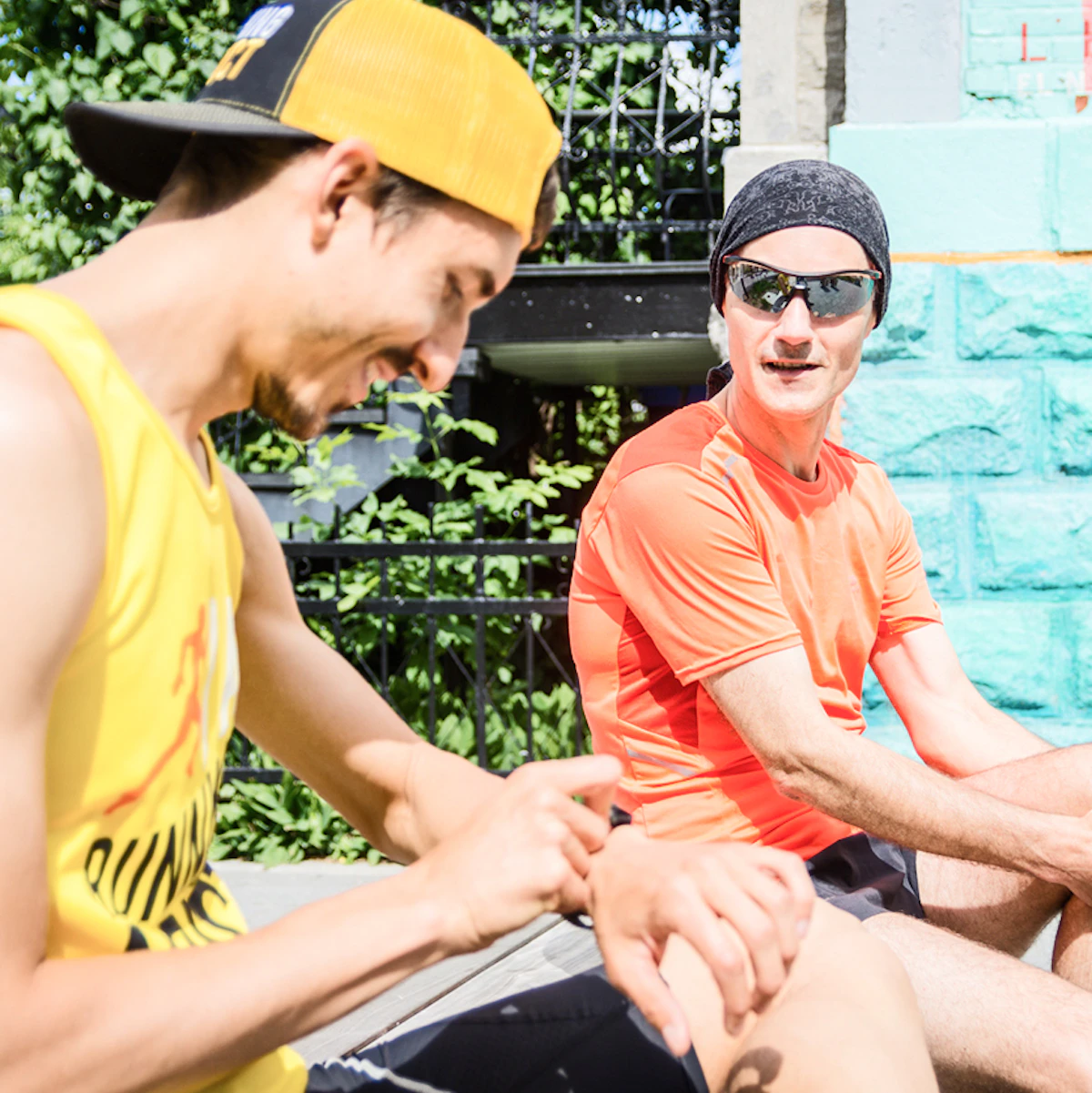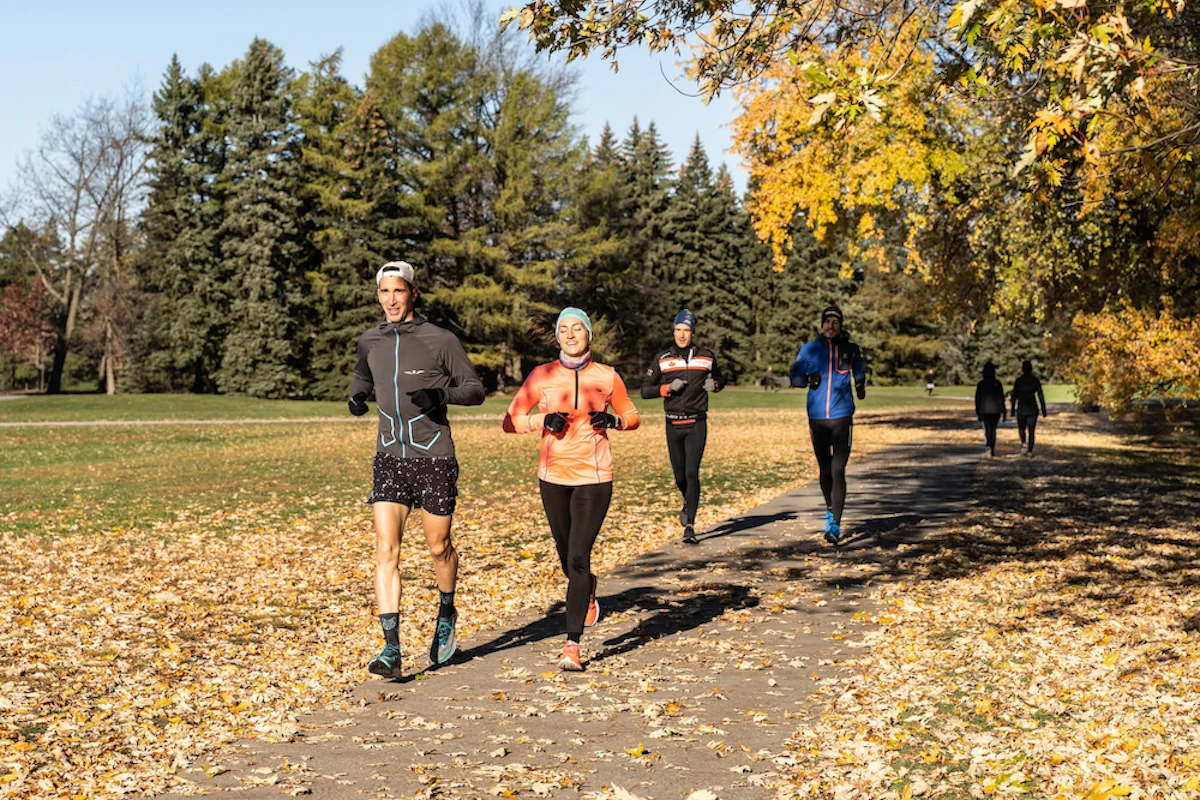
11 min read
Summary
1) Understand the reason(s) that make you want to run
2) Set yourself a concrete and achievable goal
Don't be in a hurry
Progression: it's the key to starting running
Set your goals both short-term and long-term
3) Adapt your pace to your level
If this pace forces you to alternate walking and running, don't be ashamed, we've all been there.
4) Don't confuse speed with haste
So be patient, train regularly, without putting pressure on yourself and the results will come on their own!

Receive advice from our passionate coaches!
To start running, it's important to do things in order, just like following a good recipe! We all have been running since a young age, but running for enjoyment, avoiding injuries, and making progress … It's not that simple and it requires a proper method!
When starting a new activity, we tend to get carried away by enthusiasm and motivation. You're probably going to want to run every day or almost every day, 5 or maybe 10 kilometers if you're very motivated … It's great! But we'd prefer to stop you right now: in 95% of cases, you risk injury, not keeping up the pace, losing your motivation, not achieving your goals, and you'll never wear your nice sneakers.
Many runners make these mistakes, but we are here to help you avoid them. With our advice, you'll get off on the right foot and enjoy yourself.
Here are some of our tips to to start to run. According to a study conducted by Gymlib in December 2020, only 6% of French people claim to have fully succeeded in keeping their resolutions. Thanks to these tips, we are convinced to drastically improve this statistic by putting all the odds in your favor.
🔥 If you want to embark on the adventure, we're here to support you!

1) Understand the reason(s) that make you want to run
Every runner has already heard the phrase « but why are you running? », know that there is no right or wrong answer, the reason is personal to each and that's what makes the beauty of this sport.
This question is essential because it will allow you to keep the desire and motivation in moments when all you feel like doing is giving up.
2) Set yourself a concrete and achievable goal
Once you've fully understood the driver of your motivation, the most complicated part will be to keep it, as we are not robots. It's normal to have motivated days and unmotivated days. Writing and visualizing your short and long-term goals will help you stay on track with your training.
I advise you to set simple, concrete goals that will make you proud of yourself. By simple and concrete, I mean they must be quantifiable, only depend on you (like setting a time, not finishing ahead of someone, for example), challenging but not too much, and they should deeply motivate you. And most importantly, don't compare yourself to others. There are no small or big goals; it all depends on each person's experience and practice.
Don't be in a hurry
Many people make the mistake of stopping after a few weeks due to lack of motivation. But it's a shame because the positive effects of your training will start to become visible after 1 to 2 months from your start.
If you achieve everything all at once, would your success feel the same? Running also allows you to work on your patience. The patience that will be rewarded, we promise you!
Progression: it's the key to starting running
At Campus, we have developed a beginner running plan, which is accessible to everyone (and it's free). Our goal with this plan is to offer you varied workouts that help you progress at the right pace and without stress. The final goal of this plan: run 30 minutes without stopping in 4 or 12 weeks depending on your initial level. Believe me, you can do it!
It's a virtuous circle, once you've reached your goal, all you want is to set a new one.
Set your goals both short-term and long-term
I'm talking to you about short-term goals in my previous example, but nothing prevents you from looking further. If your dream (like mine) is to run a marathon, note it down! It won't be achievable immediately, but with the accomplishment of many small goals it will get closer day by day. Having a big long-term goal is important, but to be truly effective, it's the small short and medium-term goals that will bring you to that big goal.
The most important thing is that your goal makes you want to put on your sneakers!

3) Adapt your pace to your level
That's probably the most important advice: respect your paces. Going fast when you're asked to go fast is usually not a problem, but be REALLY slow when you're asked to go slowly.
Running slowly is a fairly abstract concept for many runners. To describe this pace simply: you shouldn't be (even slightly) out of breath. Ideally, you should even be able to exchange short sentences with someone. In the 'knowledge' section of your Campus account, you can find articles that explain all the paces you’ll need in your plan.
If this pace forces you to alternate walking and running, don't be ashamed, we've all been there.
If you run in a place very crowded with other runners, let yourself get overtaken. That's normal, don't let your ego get the better of you. And tell yourself that you'll soon be in the place of that runner, as easy and comfortable as them. The goal is not to be the champion of the training, but to do what it takes to reach your goals, no more, no less.
At first, this pace can be very frustrating, but believe me, it's only a short stage. As you continue training, your body will adapt and running slowly will become enjoyable.
To limit the risk of injury, prefer terrain like a path or a forest, which are much less harsh than pavement.
Nicolas, Campus coach
To be a good runner, you need to work on all paces / qualities. Beyond the mental aspect, running slowly will allow your body to gently assimilate the traumas experienced with each step.
And in your intense workouts, that's where you can fully express yourself. But again, if a workout is rated difficulty 3/5, don't speed up to make it 5/5, that would be counterproductive.
Discover the pleasure of running with our beginner running plan 🏃🏻🏃
4) Don't confuse speed with haste
We mentioned it, progressing in running, becoming more and more comfortable or running faster and faster, it requires patience and regularity in training. The human body is well made, after each workout it will adapt to your new physical activity's pace, provided you give it enough time to recover between each training.
From the beginning, your muscles and your cardiovascular system will trigger adaptations to make you more and more capable of running. Running is like following a recipe, so don't skip a step and you'll feel real progress. When you start to run, the goal is to gradually get the machine running again, while avoiding injuries: that's what we offer you with the beginner running program. We prioritize small, but more regular distances at the beginning of this program instead of one big outing once a week, it's the Campus method!
So be patient, train regularly, without putting pressure on yourself and the results will come on their own!
The pleasure of running comes faster than you think
And yes, you're probably laughing while reading this sentence, but the pleasure of running comes very quickly! It only takes a bit of patience and regularity, all sprinkled with a lot of motivation. Once your beginner running program is complete, you can set new goals, one thing is certain: Campus will be there to support you!
If you're about to do your first race, we invite you to read a great race report by Julie, on her first bib.







